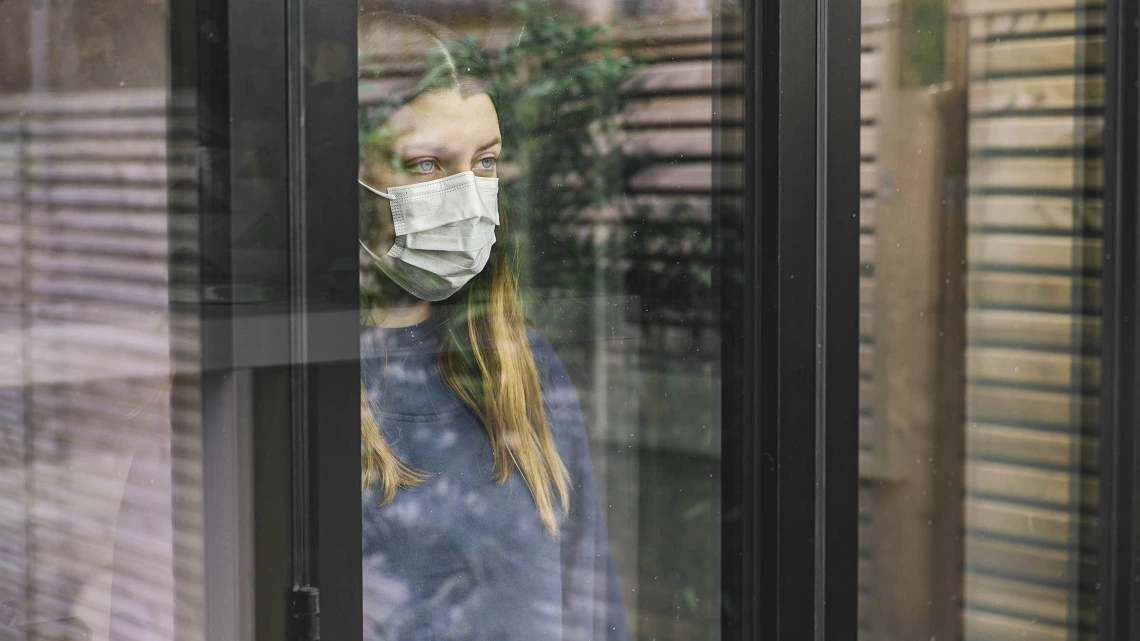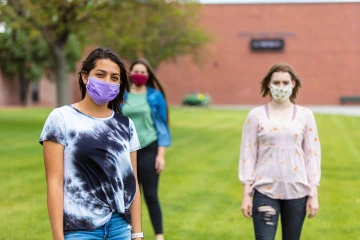Mental Health Experts Helping Teens Burdened by the Pandemic
While the isolation and stress of the pandemic has affected overall mental health, Health Sciences experts say teenagers have been hit particularly hard.

Missing out on rites of passage like in-person graduation, prom, daily social interaction and participating in extracurricular events can take a toll on the mental health of teenagers. This was exacerbated by the ongoing COVID-19 pandemic. (Getty Images)
Social distancing. Lockdowns. Remote learning. Cancelled competitions. Postponed graduation. Prom shelved. Hanging out with friends curtailed. Meaningful life events gone forever.
The challenges facing teenagers during COVID-19 have been overwhelming. As the disappointments have piled up, so have mental health concerns.

Jacquelin Esque, MD, assistant professor in the Department of Psychiatry at the College of Medicine – Tucson.
Dr. Esque, who currently is treating teenagers, said that isolation is a contributor to “feelings of sadness, anger, loneliness, loss and for some teens, depression." She says as teens have less exposure to social situations, they can have worsening anxiety that makes it difficult to return to school or other social situations.
“Although isolation impacts everyone, teenagers are uniquely affected due to the significant importance of bonding with peers during this stage of development,” Dr. Esque said.
“School closures, quarantines and virtual learning are also challenging for many teens. Some teens find it hard to focus when not in a classroom and easier to fall behind on work when they are not being actively engaged in a school setting. A major motivator for getting to school can be seeing friends, and without that, some teens lose interest in completing their work.
“Many teens also are burdened by family stressors that may be new or may have worsened during the pandemic, including financial difficulties, loss of loved ones and increased conflict between family members.”
While the emotional hardships teenagers face during the ongoing pandemic are unparalleled, the mental health crisis facing teens predates 2020.

School quarantines affect teenagers not only in the classroom, but also in important social aspects during a critical time of growth and development. (Getty Images)
According to a 2021 U.S. Surgeon General’s advisory addressing the youth mental health crisis being worsened by COVID-19, pre-pandemic “mental health challenges were the leading cause of disability and poor life outcomes in young people, with up to 1 in 5 children ages 3 to 17 in the U.S. having a mental, emotional, developmental, or behavioral disorder.
“Additionally, from 2009 to 2019, the share of high school students who reported persistent feelings of sadness or hopelessness increased by 40%, to more than 1 in 3 students. Suicidal behaviors among high school students also increased during the decade preceding COVID, with 19% seriously considering attempting suicide, a 36% increase from 2009 to 2019, and about 16% having made a suicide plan in the prior year, a 44% increase from 2009 to 2019.”
In the advisory, Surgeon General Vivek H. Murthy, MD, MBA, writes, “All of that was true even before the COVID-19 pandemic dramatically altered young peoples’ experiences at home, at school, and in the community. The pandemic era’s unfathomable number of deaths, pervasive sense of fear, economic instability, and forced physical distancing from loved ones, friends, and communities have exacerbated the unprecedented stresses young people already faced.
“It would be a tragedy if we beat back one public health crisis only to allow another to grow in its place. Mental health challenges in children, adolescents, and young adults are real, and they are widespread. But most importantly, they are treatable, and often preventable.”
The advisory includes background information, risk factors and specific, comprehensive guidelines with ways in which youth, family members and caregivers, educators, health care organizations and professionals, social media and tech companies, media organizations, foundations, employers, governments and community organizations can take action by rebuilding “in a way that refocuses our identity and common values, puts people first, and strengthens our connections to each other….(and) lay the foundation for a healthier, more resilient, and more fulfilled nation.”

